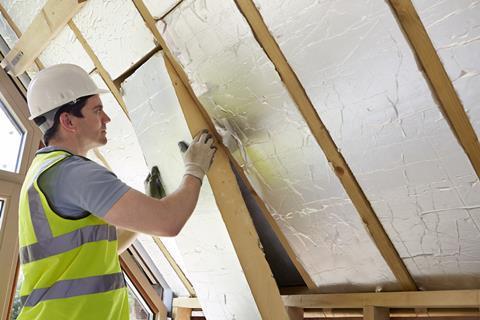Public accounts committee ‘not convinced’ that business department grasps full scale of the scheme’s failure
The government’s disastrous green homes grant “underperformed badly” and has “damaged confidence” in its ability to deliver future net zero plans, the Public Accounts Committee has said.
In its report on the Department for Business, Energy and Industrial Strategy initiative published this morning, Green Homes Grant Voucher Programme, the Public Accounts Committee (PAC) said it was “not convinced that BEIS has fully acknowledged the scale of its failures with this scheme”.

The grant, which was originally regarded as a key part of the government’s green plans, only upgraded about 47,500 homes out of the 600,000 originally planned.
It also delivered a small fraction of the expected jobs before being cancelled in March - just six months after its launch.
Dame Meg Hillier, chair of the public accounts committee said: “It cost the taxpayer £50m just to administer the pointlessly rushed through green homes grant scheme, which delivered a small fraction of its objectives, either in environmental benefits or the promised new jobs.
“We heard it can take 48 months - four years - to train the specialists required to implement key parts of a scheme that was dreamed up to be rolled out in 12 weeks. It was never going to work at this time, in this way, and that should have been blindingly obvious to the department.
“That it was not is a serious worry. I am afraid there is no escaping the conclusion that this scheme was a slam-dunk fail.”
>> Also read: Retrofit grant scheme money to be clawed back by government
>> Comment: The green homes grant fiasco is such a missed opportunity
MPs on the committee said the scheme’s failure “continues government’s troubled record of energy efficiency initiatives and risks damaging the department’s future efforts to harness both consumer and industry action to deliver government’s net zero commitments”.
Hillier added: “We will need this massive step-change in the way our homes and public buildings are heated, but the way this was devised and run was just a terrible waste of money and opportunity at a time when we can least afford it.”
The inquiry found that the scheme had been implemented as an urgent response to the covid-19 crisis, but that the 12-week timescale to implement it was “unrealistic and BEIS proceeded with it despite its own projects and investment committee rejecting its business case”.
The PAC said the result was “a scheme with poor design and troubled implementation” and that, by August 2021, 52% of homeowners’ voucher applications were rejected or withdrawn, and 46% of installer applications failed.
It added that, while the scheme’s primary aim was to support jobs, its design and duration limited its impact on employment, and its abrupt closure may have led to redundancies.
Key findings
-
The department’s failure to deliver a viable scheme has damaged confidence in its efforts to improve energy efficiency in private domestic homes.
-
Despite clear warning signs, the department proceeded with an unrealistic implementation timescale for the green homes grant voucher scheme.
-
The scheme’s design was overly complex and did not sufficiently address the needs of consumers and installers.
-
The creation of jobs was a priority for the scheme, but the department failed to maximise its impact on employment.
-
The department appointed a contractor without properly understanding whether it could deliver.
-
The department has persistently failed to learn lessons from previous energy efficiency schemes.











No comments yet